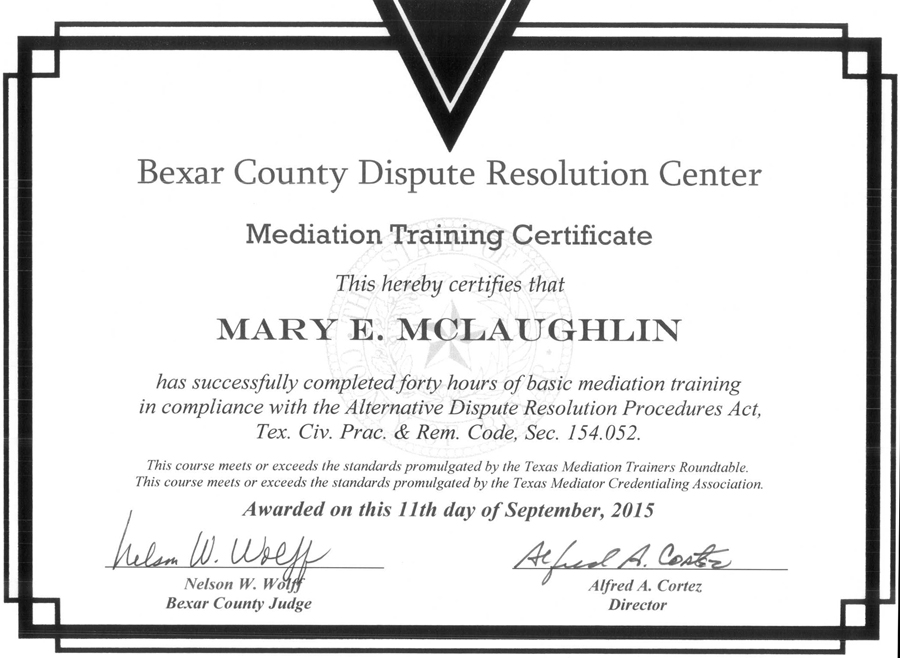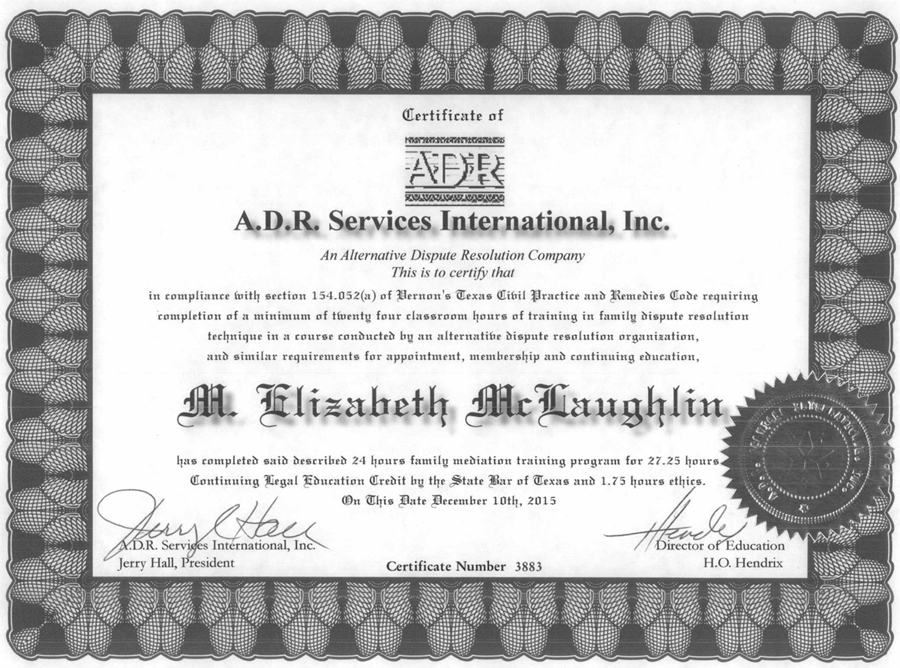Child support matters can be difficult for divorcing couples, and for those who were not married but have decided not to be together any longer. There are many ways to effectively co-parent, but there are only a set number of ways to ensure those children are financially cared for properly. McLaughlin can help with child support matters, so you and the other parent can both feel comfortable with the financial arrangements that have been made. We can also help when one parent is being asked to pay more than is fair, or when a parent who is not receiving child support chooses to seek it out and enforce a court order for it.
Understanding Your Child Support Rights
You should know that, in Texas, child support is not a privilege. As a custodial parent, you have a legal right to child support from the other parent. We are committed to pursuing those rights for you, in order to ensure that your child receives financial support. If you have a child with a person who is not paying support, and the child lives with you, we can help you collect support from that parent. Whether you are looking for your current, regularly-scheduled payments or you are focusing on past-due amounts that have not been properly collected, contact us at McLaughlin for help today.
The custodial parent — which is generally the parent who has physical custody of the child — is most often the one who will receive child support. If you are a custodial parent of one or more children, you have the right to receive child support from the child’s other parent. Sometimes this process is handled easily and without any hassle or problems. At other times, the non-custodial parent does not want to pay child support and must be located by the court. Then the payment of child support must be enforced by the court. Having a good attorney on your side can make a difference when getting and enforcing child support.
The Amount Depends on the Number of Children
If you have one child with the other parent, the non-custodial parent will be expected to pay 20 percent of their income — after Social Security, Medicare, and FICA — in child support. Two children will be 25 percent of their income, and three children will be 30 percent. Each child thereafter raises the amount that has to be paid by five percent of the non-custodial parent’s income. But the total amount paid out can never be more than 50 percent of the income of the non-custodial parent. If that parent has other children they must also support, there are some adjustments to the payment amount determined by the court.
It is important to have good legal counsel when seeking child support. One of the main reasons for that is that some non-custodial parents will deliberately remain unemployed or underemployed to avoid paying child support at the level they should be. With that in mind, we can help determine if this is the case and present information to the court. That could make a difference in the amount of child support you receive, so you and your children can have the financial protection that is your right under Texas law. There can also be some extenuating circumstances, and these have to be taken into account properly.
Make Sure You Get a Fair and Just Level of Support
Child support must be withheld from the paying parent’s paycheck by their employer. If both parents agree to direct payments, however, that is also legal. Self-employed people are not subject to withholding, and must pay the other parent directly or pay the support enforcement agency. Reach out to us at McLaughlin today, and let us help you address the importance of your child support matters. Your rights — and the rights of your children — are important to us!





